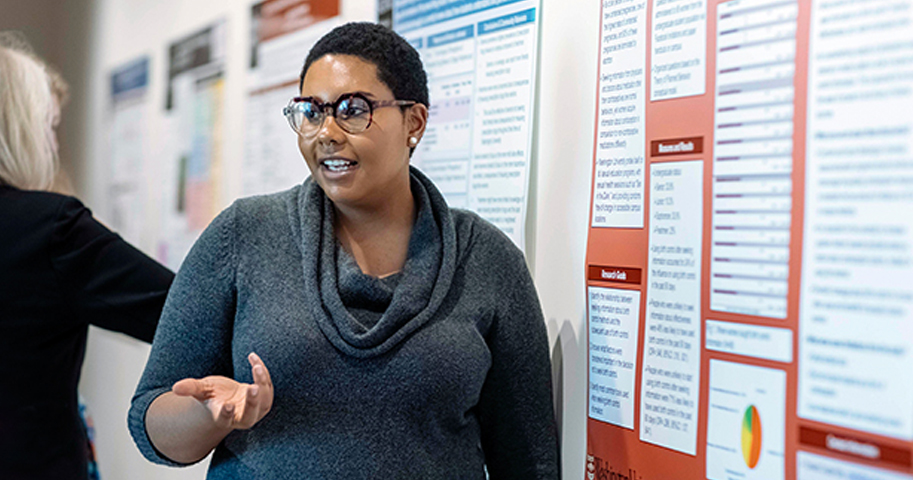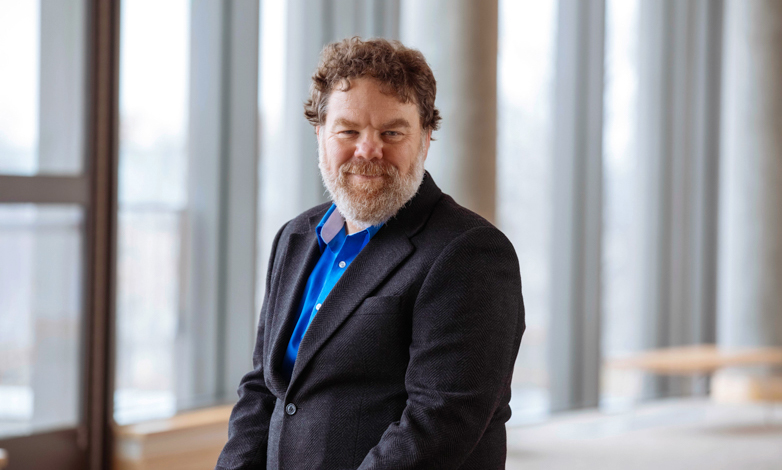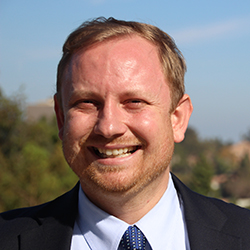Research Specialization
This specialization develops students’ expertise in planning and implementing social research.
Students pursue a two-semester study of their chosen social issue, culminating in the development of a research-based manuscript. Research coursework teaches students to write scientific proposals, manage and analyze primary or secondary data using SAS and other statistical software, conduct peer-reviews and produce abstracts for conference presentation. A series of required presentations builds experience with communicating ideas and results.
Students and graduates share results at highly competitive professional conferences, such as the Society for Social Work Research (SSWR) annual conference.
Data since 1997 show that 43% of Research specialization graduates have pursued doctoral education and gone on to serve as university educators. Other graduates often pursue research-related careers.

Career Paths
Recent graduates have been employed in positions such as:
- Data Specialist
- Evaluation Counselor
- Financial Stability Counselor
- Planning Specialist
- Research Associate
- Wellness Initiative Director
Specialization Requirements: 9 Credits
- Biostatistics (3 credits)
- Applied Linear Modeling (3 credits)
- MSW Research Seminar I (1 credits)
- MSW Research Seminar II (2 credits)
Practicum
Although Research specialization students aren’t required to choose a research-specific site for their Concentration Practicum, they can utilize their research skills through an applied research project such as a program evaluation. Students in the Research specialization have pursued their practicum at sites such as:
- Gamaliel Foundation/MCU
- Institute of Applied Research
- Missouri Institute of Mental Health, University of Missouri-St. Louis
- Race and Opportunity Lab
- U.S. Department of Housing and Urban Development
Specialization Chair

Brett Drake began his social work career as an investigative worker in Child Protective Services. For the past 30 years, he has conducted epidemiological and service research in the areas of child welfare, poverty and racial disproportionality. Drake’s current research analyzes census and child protective data to assess the efficacy of protective and preventative services.


“I not only learned cutting edge research methods, but also how to leverage them to have a positive impact on people’s lives. In my career, I have worked on research projects in the field of organ transplantation that aim to decrease racial and socioeconomic disparities in access to the best healthcare.”
John D. Peipert, MSW ’09
Assistant Professor, Northwestern University, The Feinberg School of Medicine